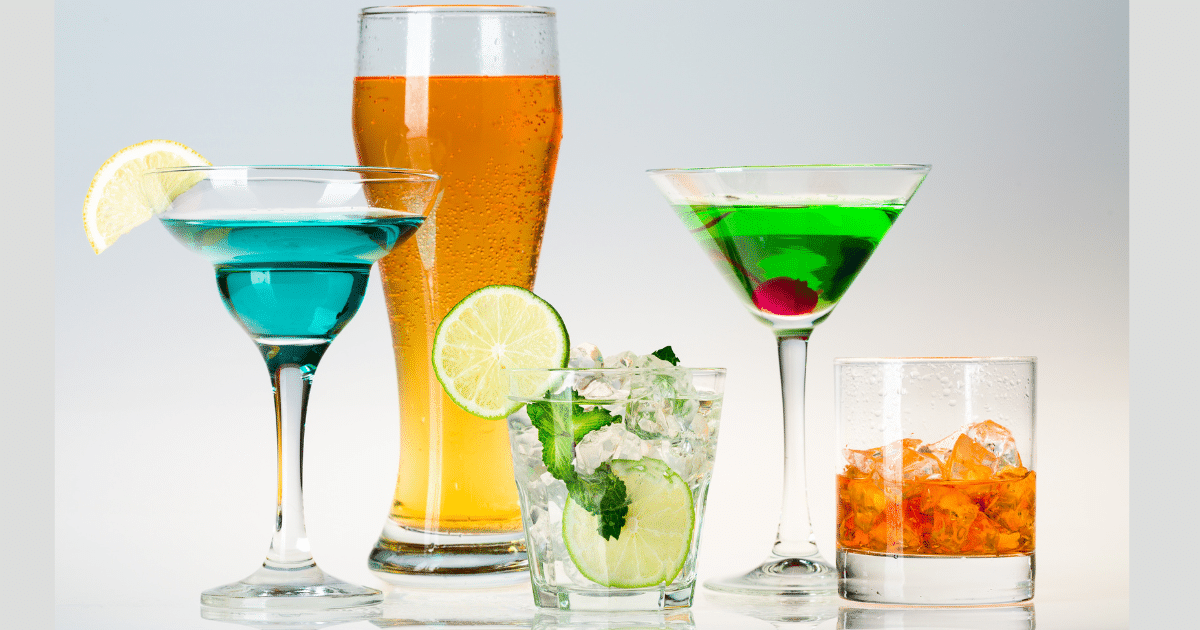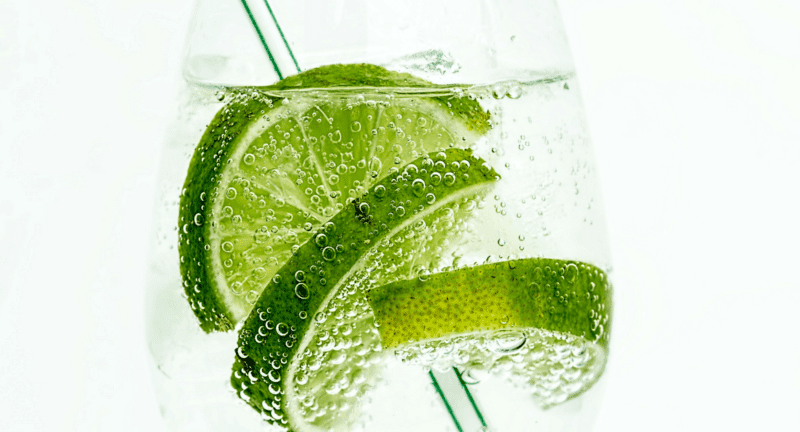4 Alcoholic Drinks That Won’t Destroy Your Fitness Progress
I want to begin this article by saying I’m not advocating that people should drink. I wanted to bring you value in this piece and let you know that if you were looking to drink socially, there are some choices that are better than others. This article will showcase four alcoholic drinks that are the best options when partaking in social gatherings where alcohol is served. More specifically, alcoholic drinks that won’t destroy your progress!
What You Need To Know About Alcoholic Drinks To Maintain Your Fitness Progress
Many people think that alcohol is simply empty calories—and they’re right. It truly has no nutritional value to promote health.
Sure, it has some antioxidants and trace amounts of nutrients that can aid in overall health benefits, but when you compare alcohol to whole nutrient-dense foods, there’s no comparison. Overconsumption of alcohol can soften your six-pack abs and hide them behind fat and a layer of water. Not to mention you’ll get drunk.

Disclaimer: This article is for informational purposes only and is not meant to treat or diagnose any condition. It is recommended that you speak with your doctor before starting any exercise program, changing your daily nutrition, or adding any supplements to your regimen.
Why Do Alcoholic Drinks Destroy Your Fitness Progress?
Alcoholic drinks can potentially hinder fitness progress for several reasons:
- Empty Calories: Alcoholic beverages often contain a significant number of calories, but they lack essential nutrients. Consuming too many empty calories can lead to weight gain, making it challenging to achieve or maintain a healthy weight.
- Inhibits Fat Metabolism: The body prioritizes metabolizing alcohol over other nutrients. When you consume alcohol, the liver focuses on breaking it down, temporarily halting the metabolism of fats. This can affect your body’s ability to burn stored fat for energy.
- Dehydration: Alcohol is a diuretic, meaning it increases urine production and leads to dehydration. Proper hydration is crucial for optimal physical performance and recovery. Dehydration can impair muscle function, decrease endurance, and delay recovery.
- Impaired Nutrient Absorption: Alcohol can interfere with the absorption of essential nutrients, including vitamins and minerals. This interference may impact muscle recovery and overall health.
- Disruption of Sleep Patterns: Regular alcohol consumption can disrupt sleep patterns. Quality sleep is essential for muscle repair, growth, and overall well-being. Poor sleep can negatively impact exercise performance and recovery.
- Impaired Decision-Making: Alcohol consumption can impair judgment and decision-making, potentially leading to poor food choices or skipping workouts.
- Muscle Breakdown: Excessive alcohol intake may contribute to muscle breakdown. This can be detrimental to fitness progress, especially if you’re working to build and maintain muscle mass.
- Interference with Hormones: Alcohol can affect hormone levels, including those that play a role in muscle growth and fat metabolism. This hormonal disruption may hinder the body’s ability to respond optimally to exercise.

It’s important to note that moderate alcohol consumption may not have as pronounced effects on fitness progress as excessive or regular drinking. However, individuals pursuing fitness goals should be mindful of their alcohol intake and consider the potential impact on their overall health and performance. It’s advisable to consult with a healthcare professional or nutritionist for personalized advice based on individual circumstances.
Should You Stop Consuming Alcoholic Drinks to See the Results You Want?
Whether or not you should stop consuming alcoholic drinks depends on various factors, including your fitness goals, overall health, and individual circumstances. Here are some considerations to help you make an informed decision:
- Fitness Goals: If your primary fitness goals include weight loss, muscle building, or overall performance improvement, reducing or eliminating alcohol consumption may be beneficial. Alcohol can contribute to excess calorie intake, hinder muscle recovery, and impede progress toward fitness objectives.
- Caloric Intake: Alcoholic beverages can be calorie-dense, and excessive calorie intake may lead to weight gain. If you are trying to maintain a caloric deficit for weight loss, cutting back on alcohol can support your efforts.
- Muscle Recovery: Alcohol can interfere with muscle recovery by disrupting sleep, impairing nutrient absorption, and inhibiting protein synthesis. If you prioritize muscle growth and recovery, minimizing alcohol consumption may be advantageous.
- Hydration: Alcohol is dehydrating, and dehydration can negatively impact exercise performance. Staying adequately hydrated is crucial for optimal physical performance, so reducing alcohol intake can contribute to better hydration.
- Overall Health: Consider the broader impact of alcohol on your health. Excessive alcohol consumption is associated with various health risks, including liver damage, cardiovascular issues, and an increased risk of certain diseases. Prioritizing overall health may involve moderating or eliminating alcohol intake.
- Personal Preferences and Social Life: Your personal preferences and social life play a role in this decision. If you enjoy socializing with alcoholic beverages and find that moderate consumption doesn’t negatively impact your fitness goals, you may choose to strike a balance.
- Moderation: Moderation is key. If you choose to consume alcohol, doing so in moderation may minimize its potential negative effects. This involves being mindful of portion sizes, choosing lower-calorie options, and avoiding excessive drinking.
- Individual Differences: Individuals metabolize alcohol differently, and its effects can vary based on factors such as age, gender, genetics, and overall health. Listen to your body and observe how alcohol affects your fitness progress and well-being.
How Many Calories Are in Alcoholic Drinks?

When it comes to caloric values, we all know that each gram of protein is four calories, each gram of carbohydrates is four calories, and each gram of fat is nine calories.
Related Article: Alcohol Flavored Supplements?
What people are often unaware of is where alcohol fits into this all and how it can affect your six pack abs. Well, for every gram of alcohol, there are seven calories. This is almost double that of carbohydrates and protein, and only slightly below that of fat. You can pack on the calories from alcoholic drinks!
1. Mixed Drinks
The amount of alcohol consumed can easily have you consuming enough calories to overdo your caloric needs for the day if you aren’t paying attention and ruin your six pack abs. Not only that, but many people are consuming drinks with added calories on top of the alcohol.
Let’s take the classic rum and Coke for example. For each one of these alcoholic drinks (depending on the rum) you’re looking at 150 calories. We all know that when you go out with friends, more than likely people aren’t going to only have one. Let’s say they drink three or four by the end of the night—that puts them between 450 and 600 calories just in alcohol.
2. The Wrong “Six Pack”
Similar to a rum and coke is beer. On average, one can or bottle of beer is around 150 calories. It’s not uncommon to see guys hanging with their buddies drinking over six beers (enter joke about having a keg instead of six pack abs) in one night (how many of your friends have six pack abs?).
That’s 900 liquid calories accounted for just from alcoholic drinks—ouch! That in itself is taking up a good portion of your daily calories and we haven’t even factored in the food you ate during the day or even the food you were snacking on while out.
Click here to continue reading…


*Disclosure: This article may contain affiliate links or ads, which means we earn a small commission at no extra cost to you if you make a purchase through these links. These commissions help support the operation and maintenance of our website, allowing us to continue producing free valuable content. Your support is genuinely appreciated, whether you choose to use our links or not. Thank you for being a part of our community and enjoying our content.
PLEASE CONSIDER SHARING THIS ON YOUR SOCIAL MEDIA TO HELP OTHERS LEARN MORE ABOUT THIS TOPIC. SIMPLY CLICK BELOW!

